Brexit: How will London change after leaving the EU?
- Published
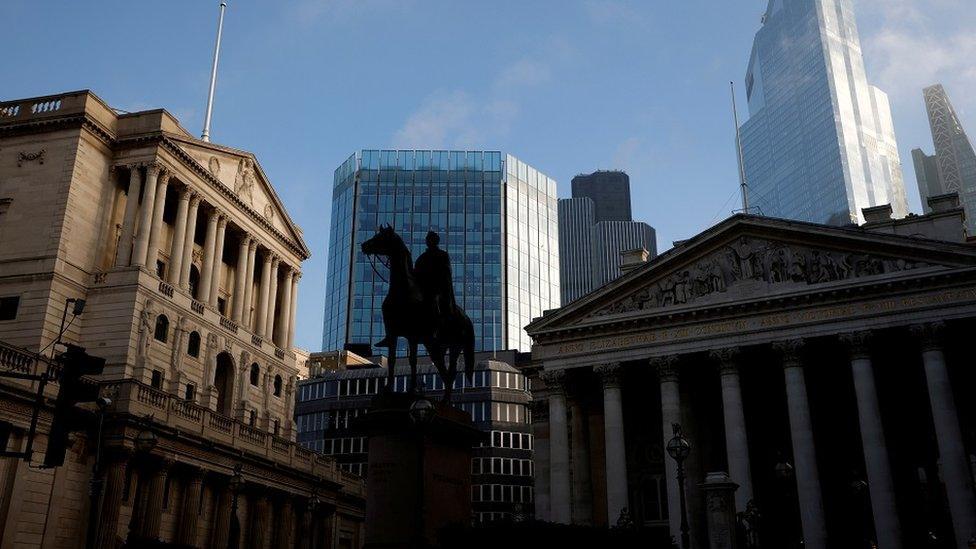
From 1 January 2021, we will get our first glimpse of what life will be like once we've left the EU.
The UK officially left the EU in January 2020 but a post-Brexit transition period kept most of the existing arrangements in place.
This expired on Thursday 31 December and EU rules will no longer apply.
So how different will life look and feel for those of us living and working in London?
People
Freedom of movement is about to end.
This means EU citizens will no longer have the automatic right to move to the UK to live and work. And vice versa.
There will still be immigration - as long as people meet the government's new points-based system.
If they are already living in the UK, EU citizens have until 30 June 2021 to apply to stay under the EU Settlement Scheme.
Since the scheme opened in August 2018 the government said 4.48 million EU citizens have applied.
Of those, 3.8 million were given grants of status.
But the new system comes with risks according to the3million, external, a campaign group for EU citizens living in the UK.

UK citizens will no longer have the automatic right to move to the EU to live and work, and vice versa
"We have already seen employment agencies turn away EU citizens applying for warehouse jobs, not recognising their national ID nor settled status as proof of their right to work," Maike Bohn, co-founder of the3million said.
"We are worried about those who have lost everything, who might be sleeping rough, who might not get any assistance applying for settled status and who are in danger of being removed from the UK."
The UK's migrant population is concentrated in London.
More than 1 million people from the EU live in the capital.
Around 35% of people living in the UK who were born abroad live in the capital city.
There might be a noticeable change in where those migrants come from, come the new year.
Business
The new UK-EU trade deal has brought some relief to businesses in the capital who rely on importing or exporting goods.
The deal, signed into law on Wednesday, means there are no extra charges on goods - otherwise known as tariffs.
There are also no limits set on the amount that can be traded between the EU and the UK from 1 January.
Harmeet Ahuja works at Sun Mark foods in Greenford, west London, which exports goods all over the world, and he said the new deal would lead to "benefits" for business.
He said: "Industry will be forced to look to other markets and the opportunities they provide.
"At the moment it is all too easy to look across the Channel and do business with our neighbours in Europe because it is quick and cheap and the impediments to the business were almost none.
"There are vast markets beyond the EU but it means getting out of our comfort zone and exploring further."
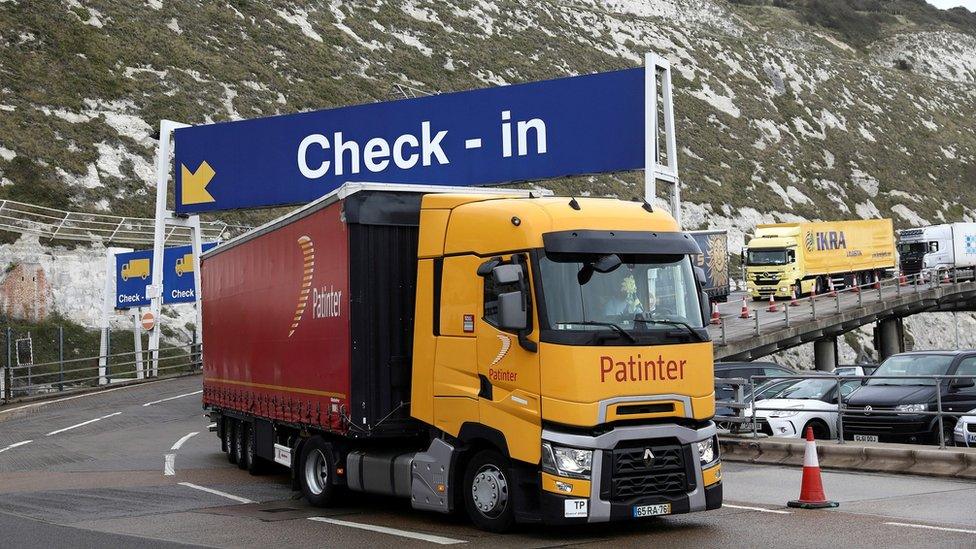
The UK-EU trade deal sets no quotas or tariffs on imports or exports
Production costs in farming will be pushed up by "additional red tape", according to Lee Stiles, the secretary for the Lea Valley Growers Association.
Lea Valley farmers both export homegrown goods to the EU and imports vegetables from the EU.
Mr Stiles said: "It is inevitable that there will be disruption and shortages into the new year following lorry freight delays experienced before Christmas.
"This will be compounded by new border controls."
The UK has left the EU customs union and single market. This means there will be a new series of customs and regulatory checks for exports and imports - including checks on the rules of origin.
Extra charges could be incurred if products contain parts not manufactured in the EU or the UK.
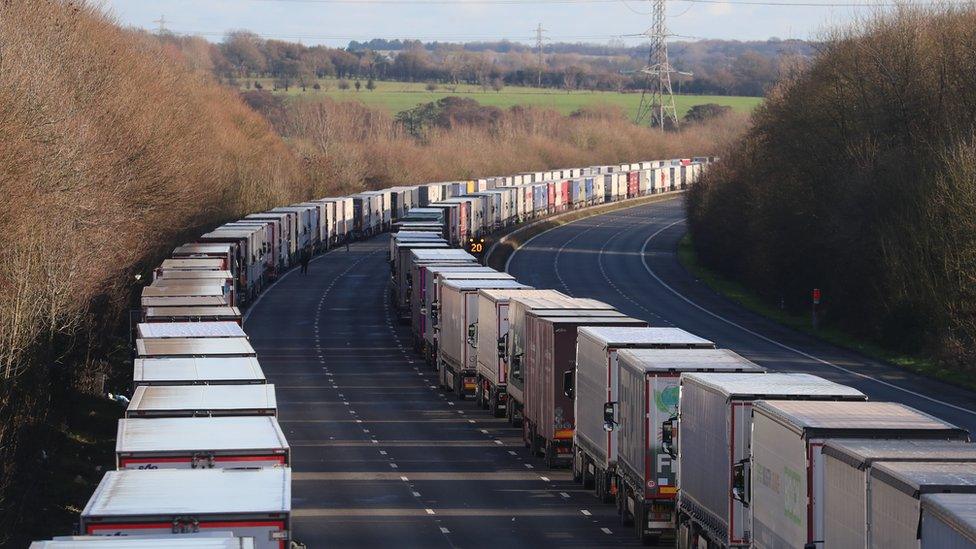
Lorry freight delays experienced before Christmas will lead to "disruption and shortages into the new year", farmers warn
The London Chamber of Commerce and Industry (LCCI) welcomed the trade agreement.
But there are still "unknown" consequences from the deal, Richard Burge, the Chief Executive of the LCCI said.
"Business still need time to "ascertain where the real-term impacts of Brexit may lay for them, their supply chains and customers," he said.
Financial Services
One area noticeably absent from the deal is financial services.
The UK's financial services industry automatically lost the right to trade in the EU's single market on 1 January.
The City of London is a big wealth generator for the country.
In 2018 it generated £132bn for the UK economy - nearly half of the UK's financial sector's total output, external.
The sector's future access to the EU remains uncertain and the details are still being negotiated.
Catherine McGuinness, policy chair of the City of London Corporation, said she hoped the current trade agreement was a positive sign.
She said: "We urge both sides to continue to work on outstanding issues."
Related topics
- Published31 December 2020
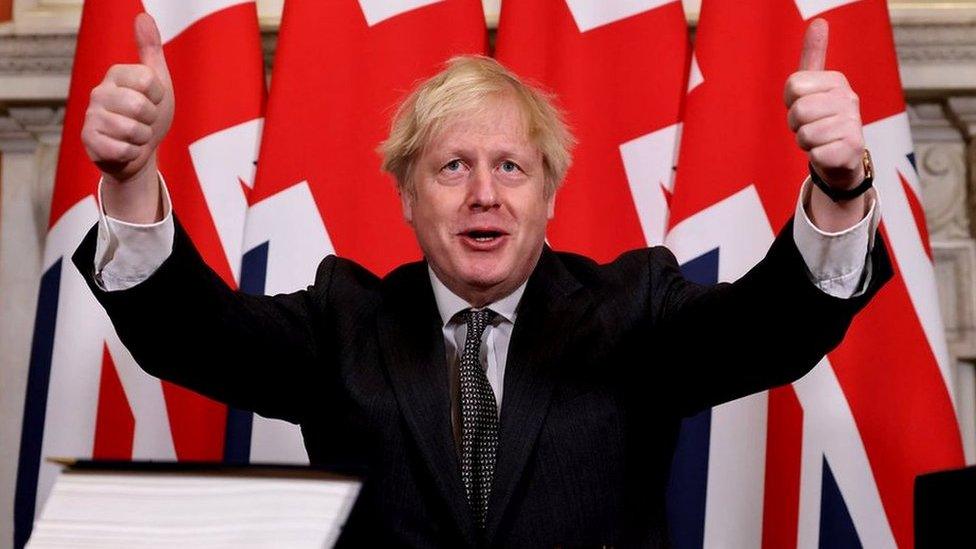
- Published30 December 2020
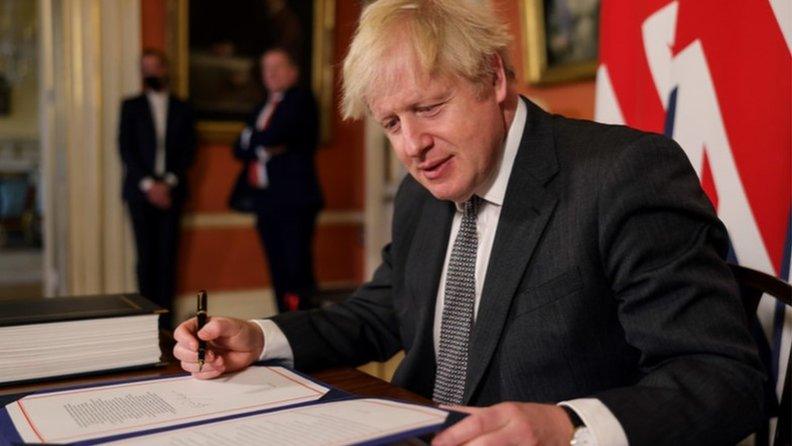
- Published30 December 2020

- Published28 December 2020
